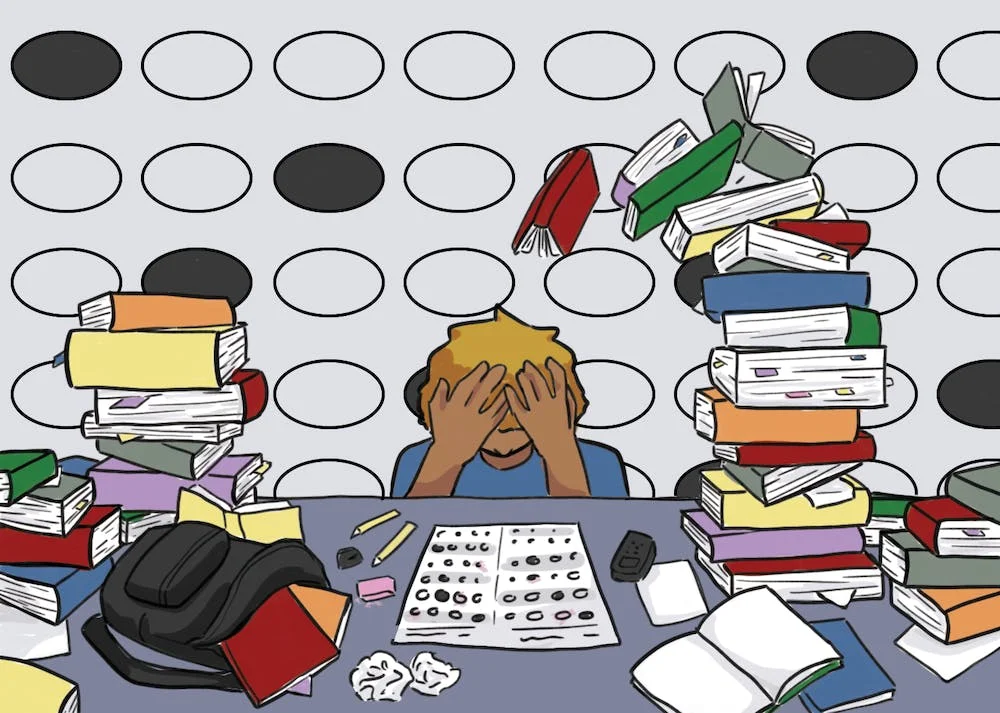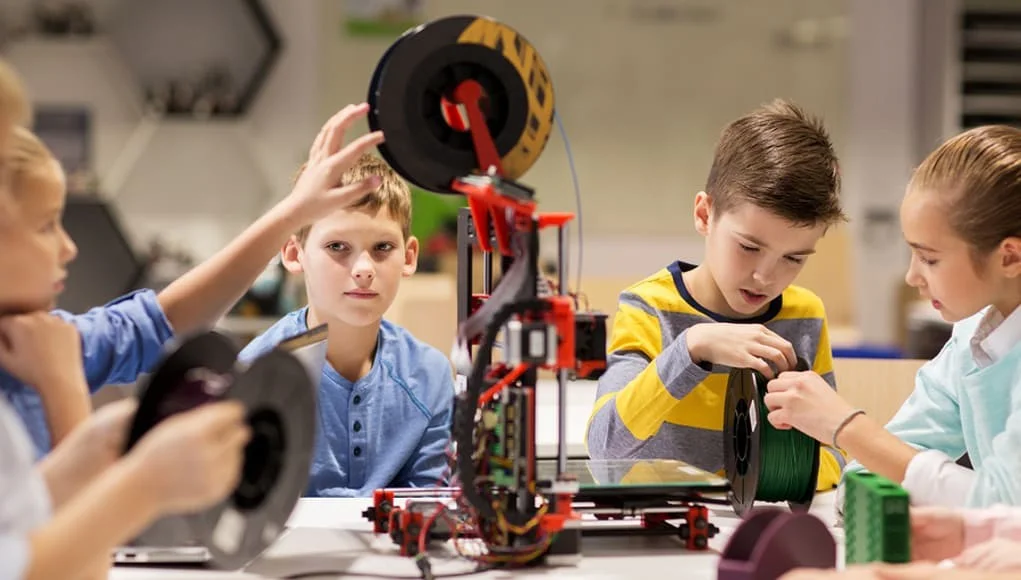
Standardized testing serves as both a cornerstone and a subject of ongoing debate within the education system. As a method of evaluating students’ academic abilities uniformly, it provides a standardized benchmark for comparison.
In a landscape where educational success is often gauged by standardized test scores, almost 80% of educators admit to grappling with considerable pressure.
However, a paradigm shift is emerging, as educators voice a collective desire for a more holistic approach to measuring school success—one that considers graduation rates, school climate surveys, and teacher turnover and attrition rates as crucial indicators.
What is Standardized Testing?
At its core, standardized testing is a systematic approach to evaluating student’s academic knowledge, skills, and abilities consistently. Tests like the SAT, ACT, GRE, GMAT, and others follow a standardized format, enabling objective comparisons among students on a national or international scale. These assessments are integral to college admissions, graduate school eligibility, and various professional certifications.
However, a closer examination leads to varied benefits and limitations that shape the academic journey from high school through higher education.
Recommended Reading: How To Get Into Harvard – 2024 Guide
Benefits of Standardized Testing:
Understanding the benefits of standardized testing offers valuable insights into its role as a tool for comparative analysis, accountability measures, and efficient evaluation of large student cohorts. This exploration highlights the positive aspects that contribute to standardized testing’s significance within the educational framework.
Objective Evaluation:
Standardized tests are impartial, minimizing subjective biases in assessment.
Comparative Analysis:
They facilitate the nationwide or international comparison of individual or group academic performance.
Accountability Measures:
Standardized testing holds schools, teachers, and educational systems accountable for students’ overall performance.
Efficiency in Evaluation:
These tests efficiently assess large groups of students, offering a snapshot of their academic proficiency.
College Admissions Metrics:
Common tests like the SAT and ACT serve as standardized metrics for college admissions, ensuring a level playing field for applicants.
Recommended Reading: Purdue University: Fees, Rankings & Acceptance Rate
Limitations of Standardized Testing:
These systems have limitations too! Acknowledging these limitations is crucial for fostering a comprehensive understanding of a student’s abilities and addressing broader systemic challenges within the educational system.
The limitations are:
Narrow Focus on Skills:
Critics argue that standardized tests may focus narrowly on a limited set of skills, potentially overlooking the full spectrum of a student’s abilities.
Socioeconomic Bias:
Concerns arise from the correlation between socioeconomic status and test performance, raising questions about the fairness of the system.
Teaching to the Test:
The pressure to perform well may lead educators to adopt a “teaching to the test” approach, potentially sacrificing a more comprehensive curriculum.
Limited Assessment of Creativity:
Standardized tests may fall short in effectively measuring creative thinking, problem-solving, and other critical aspects of intellectual abilities.
Stress and Anxiety:
The high-stakes nature of standardized tests contributes to stress and anxiety among students, potentially impacting their performance.
Recommended Reading: Special Education: Get Help for Your Child (for Parents)
What Do Test Scores Tell?
Test scores serve as a comparative measure, offering insights into a student’s mastery of tested material within the specific context of the assessment and aiding decision-making processes, like college admissions. In contrast, Other Testing Measurements, such as project-based assessments and teacher evaluations, provide a diverse and holistic perspective on a student’s abilities. These alternative approaches unlock perspectives judging a person’s level of learning that might be overlooked in traditional testing environments, contributing to a more comprehensive understanding of a student’s knowledge and skills.
Recommended reading: Best Private Schools in St. Louis
Other Testing Measures
1. Project-Based Assessments:

Accuracy: High
Rationale: Emphasizes practical application, providing a real-world perspective and evaluating a student’s ability to synthesize information and solve problems.
2. Portfolios:

Accuracy: Medium to High
Rationale: Offers a comprehensive view of achievements and growth over time, with accuracy dependent on the depth and diversity of the portfolio.
3. Performance Tasks:

Accuracy: Medium to High
Rationale: Gauges specific skills or problem-solving abilities in real-world scenarios, providing a practical assessment.
4. Formative Assessments:

Accuracy: Medium
Rationale: Provides ongoing feedback, allowing for timely adjustments in teaching strategies, and enhancing accuracy over time.
5. Teacher Assessments:

Accuracy: High
Rationale: Offers a personalized and holistic perspective, grounded in daily interactions, observations, and understanding of the material.
Considerations for Accuracy?
Subjectivity: Mitigated with training and clear rubrics.
Relevance: The more aligned assessments are to real-world scenarios, the more accurately they reflect practical abilities.
Consistency: Clear guidelines and training for educators enhance reliability.
Conclusion:
The accuracy of standardized test scores in determining a child’s success or failure is a complex issue with multifaceted considerations. Critics argue that these tests emphasize specific topics and cause unnecessary stress.
Cathy Engstrom, a professor at SU’s School of Education, stated that standardized tests are not reliable indicators of college success. While these scores offer specific metrics for academic content mastery and are anchored in statistical measures like reliability, they fall short of capturing the diverse spectrum of a student’s abilities.
The ongoing debate calls for a nuanced approach. Exploring alternative assessment methods can provide a more holistic view of a student’s knowledge, skills, and abilities, contributing to the development of a more equitable and effective education system that nurtures diverse talents.
Moonpreneur is on a mission to disrupt traditional education and future-proof the next generation with holistic learning solutions. Its Innovator Program is building tomorrow’s workforce by training students in AI/ML, Robotics, Coding, IoT, and Apps, enabling entrepreneurship through experiential learning.

























